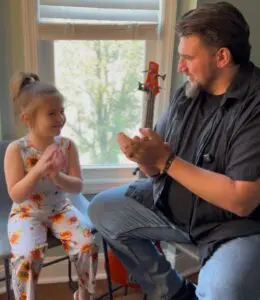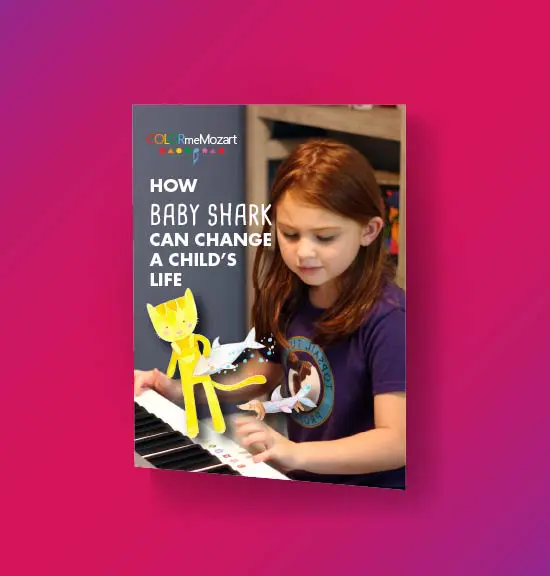 In the bustling world of education, where science, technology, engineering, and mathematics (STEM) subjects reign supreme, the harmonious and enriching world of music often finds itself struggling for recognition and funding. The phrase “music in early development” encapsulates the essence of this issue: the crucial role music plays in nurturing young minds and its unfortunate neglect in many educational settings. In this blog, we will delve into the profound impact of music in early development and make a passionate plea for a change in the way we prioritize and fund music education in schools.
In the bustling world of education, where science, technology, engineering, and mathematics (STEM) subjects reign supreme, the harmonious and enriching world of music often finds itself struggling for recognition and funding. The phrase “music in early development” encapsulates the essence of this issue: the crucial role music plays in nurturing young minds and its unfortunate neglect in many educational settings. In this blog, we will delve into the profound impact of music in early development and make a passionate plea for a change in the way we prioritize and fund music education in schools.
The Neglect of Music Education
Music education in schools is a vital component of a well-rounded education. It is not merely about teaching children to sing or play instruments; it encompasses a wide array of skills that contribute significantly to a child’s overall development. However, it often takes a backseat in school budgets, and the consequences of this neglect are far-reaching.
The Cognitive Benefits
Research has consistently shown that music in early development enhances cognitive abilities. Learning to read sheet music or playing an instrument requires a great deal of concentration, attention to detail, and memorization. These skills translate to improved memory, problem-solving abilities, and enhanced spatial-temporal skills, which are critical for mathematical understanding and proficiency in STEM subjects.
Furthermore, music has been found to stimulate the brain in unique ways. Neuroscientists have discovered that when children engage in music activities, their brains light up with activity, forging new neural connections and fostering creativity. This cognitive stimulation contributes to enhanced academic performance across various subjects, making music an invaluable tool for overall educational success.
Emotional and Social Development
Music is not just a cerebral endeavor; it also has a profound impact on emotional and social development. Through group activities like choir or ensemble performances, children learn cooperation, teamwork, and communication. They develop a sense of belonging and self-esteem as they work together to create beautiful music.
Moreover, music provides an emotional outlet. It allows children to express themselves, process complex feelings, and develop emotional intelligence. In a world where mental health issues among young people are on the rise, the emotional benefits of music cannot be overstated.
Cultural Appreciation and Diversity
Music education introduces children to the rich tapestry of human culture. It exposes them to different musical traditions and styles from around the world. This exposure fosters cultural appreciation and diversity, helping children develop a more inclusive worldview.
Understanding and appreciating diverse musical traditions also encourages creativity. It teaches children that there are countless ways to express oneself through music, and this diversity of expression can inspire innovation and artistic exploration.
The Funding Gap
Despite the myriad benefits of music education, it often faces the harsh reality of insufficient funding in schools. Tight budgets and competing priorities have left music programs vulnerable to cuts and neglect. This chronic underfunding has dire consequences for students and society as a whole.
The Need for Change
It’s time for a paradigm shift in how we view and prioritize music in early development. The phrase “music in early development” should be synonymous with holistic education. Here are some steps we can take to address this issue:
1. Advocate for Music Education
Parents, teachers, students, and community members can play a pivotal role in advocating for music education. Attend school board meetings, speak up about the importance of music, and support initiatives that promote its inclusion in schools. It’s crucial to make sure decision-makers understand the value of music in early development.
2. Invest in Music Resources
Schools need financial resources to support music programs adequately. This includes having rich music curriculum aimed at young children, purchasing instruments, maintaining facilities, and providing the resources necessary for teachers. A well-funded music program is essential for ensuring high-quality music education starting as early as preschool.
3. Encourage Performances Aimed at Unifying Parents and Students
Performances and recitals are a great opportunity to involve everyone in the success of music education for young children. In addition to creating life-long memories to cherish, it also increases a child’s social development and confidence.
4. Integrate Music into the Curriculum
Schools should consider integrating music into the overall curriculum, recognizing its potential to enhance learning in other subjects. Interdisciplinary approaches that combine music with math, science, history, and literature can create a more holistic and engaging educational experience.
5. Expand Access to Music Education
Every child should have access to music education, regardless of their socio-economic background. Color Me Mozartâ„¢ was specifically created to ensure that every classroom could have access to high-quality early music education.
Conclusion
The phrase “music in early development” is a powerful reminder of the pivotal role music plays in shaping young minds. It fosters cognitive development, emotional intelligence, cultural appreciation, and creativity. However, the chronic underfunding of music education in schools threatens to deprive future generations of these invaluable benefits.
It is incumbent upon us, as parents, educators, and advocates, to champion the cause of music education. By advocating for adequate funding, investing in resources, and promoting public-private partnerships, we can ensure that music in early development remains an integral part of a well-rounded education.
Let us recognize that music is not an extracurricular luxury but a fundamental element of a child’s growth and development. The time for change is now, and the harmonious future of our children depends on it.




